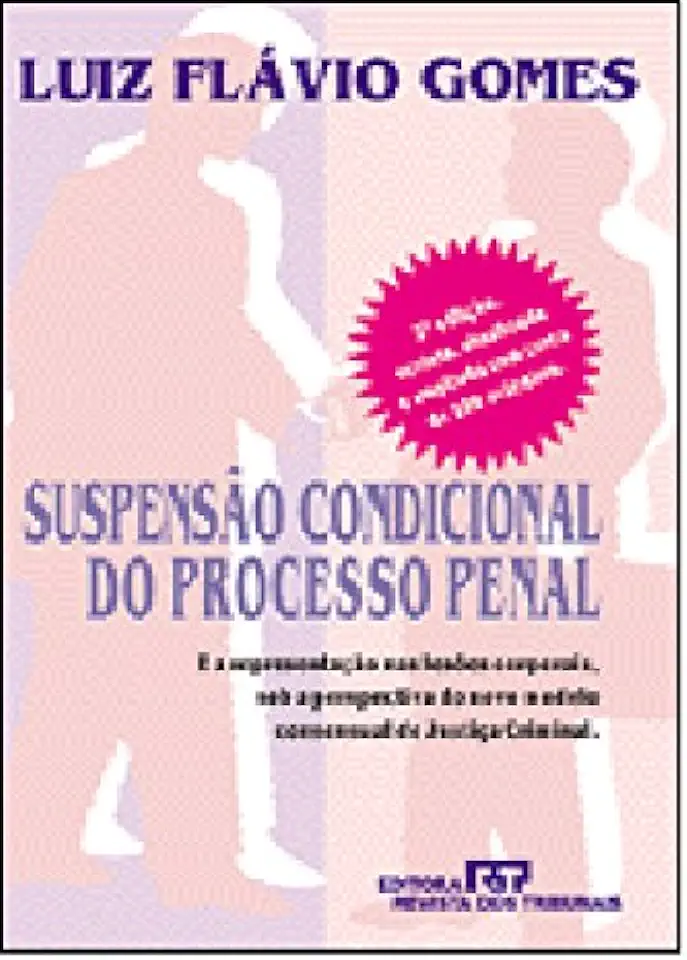
Conditional Suspension of the Criminal Process - Luiz Flávio Gomes
Conditional Suspension of the Criminal Process: A Comprehensive Guide to the Brazilian Criminal Justice System
Introduction
In "Conditional Suspension of the Criminal Process," renowned Brazilian legal scholar Luiz Flávio Gomes provides a comprehensive and insightful analysis of the conditional suspension of the criminal process in Brazil. This groundbreaking book offers a deep dive into the theoretical and practical aspects of this unique legal mechanism, exploring its historical development, legal framework, and application in the Brazilian criminal justice system.
Historical Development
Gomes begins by tracing the historical evolution of the conditional suspension of the criminal process in Brazil. He examines the origins of this concept in Roman law and its subsequent adoption and adaptation in various legal systems around the world. Gomes provides a detailed account of the development of conditional suspension in Brazil, highlighting the key legal provisions and jurisprudential decisions that have shaped its current form.
Legal Framework
The book delves into the intricate legal framework governing the conditional suspension of the criminal process in Brazil. Gomes meticulously analyzes the relevant provisions of the Brazilian Criminal Code, the Code of Criminal Procedure, and other applicable laws and regulations. He explains the conditions and requirements for the application of conditional suspension, including the nature of the offense, the defendant's criminal record, and the potential for rehabilitation.
Application in Practice
Gomes provides a comprehensive overview of the practical application of conditional suspension in the Brazilian criminal justice system. He examines the role of various actors involved in the process, including judges, prosecutors, defense attorneys, and social workers. Gomes discusses the procedures for requesting and granting conditional suspension, as well as the monitoring and enforcement mechanisms in place to ensure compliance with the conditions imposed.
Advantages and Challenges
Gomes critically assesses the advantages and challenges associated with the conditional suspension of the criminal process. He highlights the potential benefits of this mechanism in reducing prison overcrowding, promoting restorative justice, and facilitating the rehabilitation of offenders. However, Gomes also acknowledges the challenges in implementing conditional suspension effectively, such as the risk of recidivism and the need for adequate resources for monitoring and supervision.
Comparative Analysis
To provide a broader perspective, Gomes engages in a comparative analysis of conditional suspension in Brazil with similar mechanisms in other jurisdictions. He examines the approaches adopted in countries such as the United States, Germany, and Portugal, drawing valuable insights from their experiences and lessons learned. This comparative analysis enriches the understanding of conditional suspension and its potential implications for criminal justice reform.
Conclusion
"Conditional Suspension of the Criminal Process" is a must-read for anyone interested in the Brazilian criminal justice system and the broader field of criminal law. Luiz Flávio Gomes' expertise and meticulous research make this book an invaluable resource for scholars, practitioners, policymakers, and anyone seeking a deeper understanding of this important legal mechanism. With its comprehensive analysis and engaging writing style, "Conditional Suspension of the Criminal Process" is a compelling read that will captivate readers from beginning to end.
Enjoyed the summary? Discover all the details and take your reading to the next level — [click here to view the book on Amazon!]